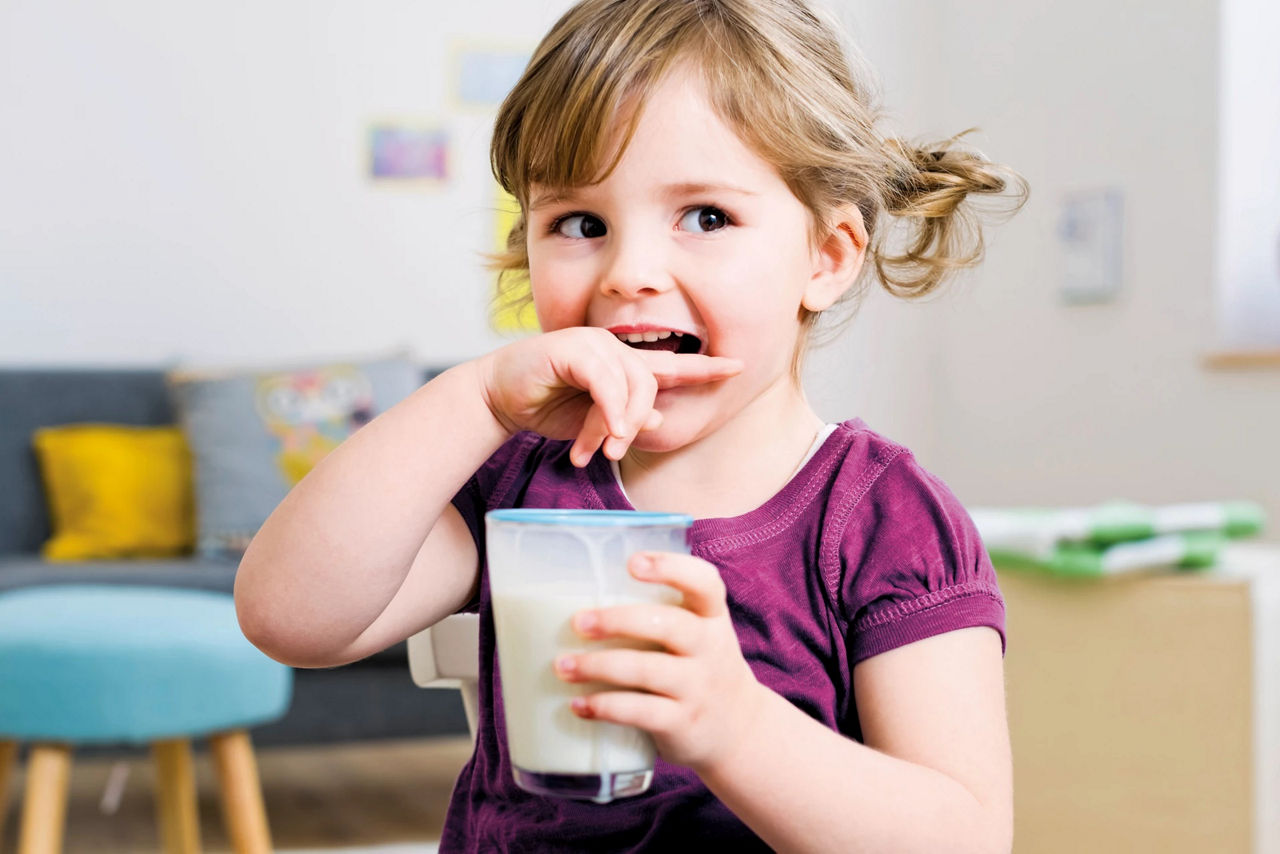Free weaning plan - Register here
Why is Vitamin D important?
Vitamin D is an essential micronutrient for both children and adults. Throughout all stages of our lives, vitamin D helps to promote the growth and maintenance of our bones, muscles and teeth1. So of course, vitamin D is especially important for babies and toddlers who are rapidly growing and developing in front of our eyes every day!
Vitamin D and the weather
Vitamin D is known as the ‘sunshine vitamin’ because it’s naturally produced by our body when our skin is directly exposed to sunlight. Every year from around the end of March until September, children should be able to get enough vitamin D from being outside during daily activities (don’t forget the sunscreen!), though this can be harder to achieve in winter months1.
Vitamin D and diet
If your baby has started weaning, there are also some ways you can increase your child’s vitamin D intake through their diet by offering foods like oily fish, eggs, red meat and fortified foods (e.g. some baby cereals and spreads)*2.
*Ensure any food you offer your baby is prepared appropriately, take care to remove any bones from meat or fish3.
How much vitamin D does my little one need?
Sometimes it can be difficult for children to get enough vitamin D through their diet alone, so the Department of Health recommends2:
- If your baby is breastfed and under 1 year of age, they should be given a daily supplement containing 8.5-10 micrograms of vitamin D.
- If your baby is formula fed, you do not need to give them vitamin D supplements as formula milk is already fortified with vitamin D and other nutrients.
- If your child is aged 1 to 4, they should be given a daily supplement containing 10 micrograms of vitamin D.
If you would like more information about vitamin D supplements for your little one, please contact a Healthcare Professional.
- NHS. Vitamin D [Online]. 2021. Available at: https://www.nhs.uk/conditions/vitamins-and-minerals/vitamin-d/
- NHS. Vitamins for Children [Online]. 2021. Available at: https://www.nhs.uk/conditions/baby/weaning-and-feeding/vitamins-for-children/:
- NHS. Your Baby’s First Solid Foods [Online]. 2021. Available at: https://www.nhs.uk/conditions/baby/weaning-and-feeding/babys-first-solid-foods/
Important notice:
Breastfeeding is best for babies and provides many benefits. It is important that, in preparation for and during breastfeeding, you eat a varied, balanced diet. Combined breast and bottle feeding in the first weeks of life may reduce the supply of your own breastmilk, and reversing the decision not to breastfeed is difficult. The social and financial implications of using an infant formula should be considered. Improper use of an infant formula or inappropriate foods or feeding methods may present a health hazard. If you use an infant formula, you should follow manufacturer’s instructions for use carefully – failure to follow the instructions may make your baby ill. Always consult your doctor, midwife or health visitor for advice about feeding your baby.

Join our baby club
Ready to stop worrying about what other people think and do what feels right to you? We’ll give you the support you need to follow your instincts and enjoy parenthood to the max:
Helpful emails
Non-judgemental support
Free weaning plan
Tips from real parents
More from toddler
Toddler topics
Need free advice with a smile? Get in touch with our dedicated Care team.
Ask us a question (8am - 8pm Monday to Friday, 10am - 4pm Weekends)
Messenger
Contact us on Facebook ( 10am–10pm Mon–Sat, 10am–5:30pm Sun)
Call us
Call us on 0800 977 8880 (8am - 8pm Monday to Friday)
FAQs
Get answers to your most frequently asked questions




